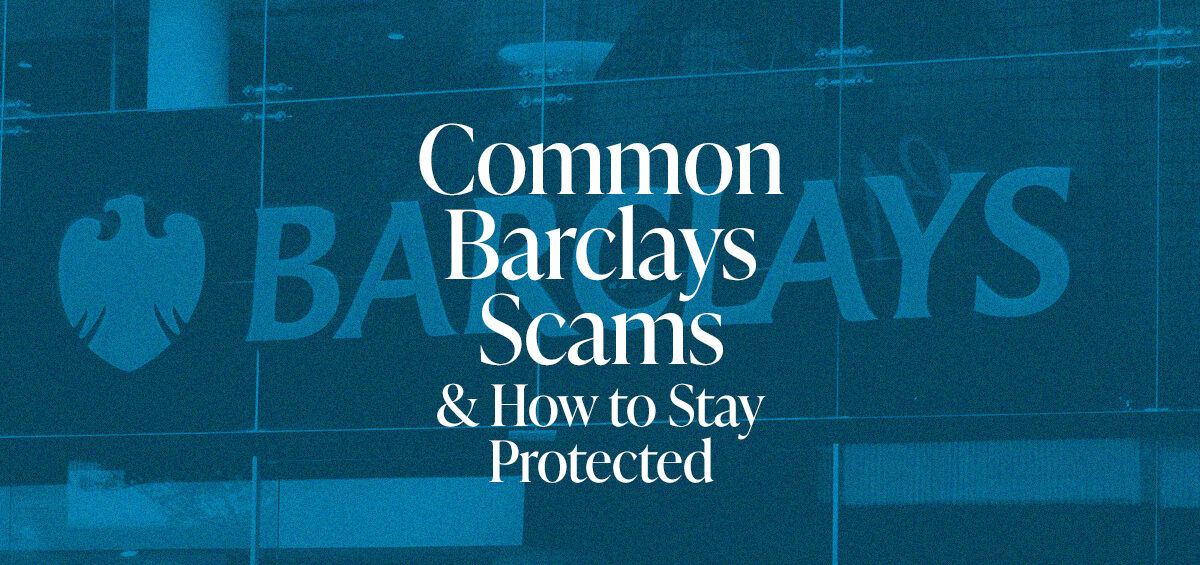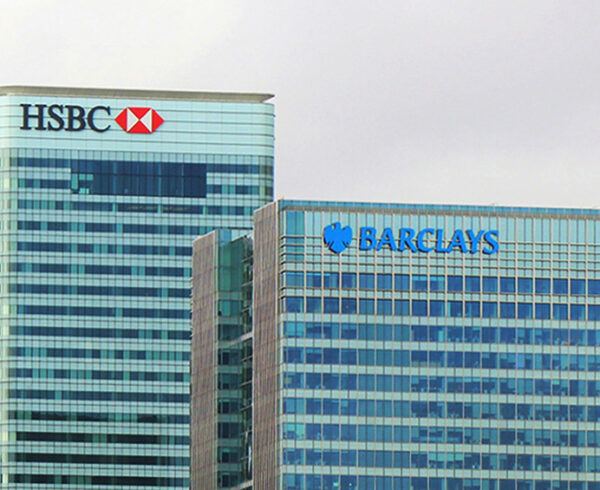Barclays is one of the UK’s largest banks, with over 20 million customers in the UK alone. Given the sheer scale of fraud in the UK, Barclays customers are a prime target for scammers.
In this post, we’ll outline the most common scams targeting Barclays customers, and give you some essential tips for staying safe.
Main Barclays Scams to Watch Out For
The tactics scammers use change constantly as they find new ways to trick people into parting with their money. Barclays themselves provide a regularly updated list of the latest tactics to watch out for.
However, some scams have proven exceptionally successful. For this reason, they are the most common scams you’re likely to encounter – and it’s essential you can identify them easily.
Phishing, Vishing and Smishing
These three types of scam are fundamentally the same – in each case, you are encouraged to part with your personal information by a scammer pretending to be someone they aren’t.
Usually, you will receive a message that appears to be from a trusted organisation – your bank, for instance. The message will ask you for some personal information. It may even link you to a fake website for this purpose. Needless to say, any personal information you provide is sent directly to the scammer.
The difference between these three types of scam is simply the way the scammer contacts you. Phishing uses emails, whereas vishing uses phone calls and smishing uses text messages.
Impersonation Scams
An impersonation scam is a more sophisticated variant on the phishing scam. Whereas phishing scams often send generic emails to large numbers of people, impersonation scams will focus on building a more direct, personal relationship with you.
In this case, the scammer will pretend to be a specific person – an employee at your bank, for example, or a delivery driver. They may use information gained in a previous scam to convince you. Once they have your trust, they will find ways to extort money from you.
Celebrity impersonation scams are an increasingly popular variant on this scam. In this case, the scammer sets up a fake website or social media profile pretending to be a well-known figure like Taylor Swift or Elon Musk. By posing as a famous figure, they can build trust with their targets more easily.
Job Offer Scams
Job offer scams involve scammers posing as recruiters or companies with open positions. They may post fake job adverts or directly contact jobseekers to offer them work. Either way, the jobseeker will be asked to provide personal information. The scammers may even ask for money for an “admin fee”.
Unsurprisingly, this scam is often targeted at younger people who are eager to secure their first job or get their foot on the career ladder. This can make them less likely to take precautions or to ask important questions – especially as scammers will try to create a false sense of urgency.
How to Protect Yourself From Barclays Scams
- Make use of Barclays’ security measures. Like many banks, Barclays offer a range of security measures, including two-factor authentication when logging in (2FA). Ensure you activate all recommended security measures and use them every time you want to make a purchase.
- Be suspicious of unexpected contact. If an organisation or an individual gets in touch out of the blue, be wary. Double-check where the message came from and, if you have any doubts, get in touch with the organisation directly to make sure it’s them.
- Don’t give out any personal information. Unless you have verified who you’re speaking with, don’t provide any personal details. Even just confirming your name or email address can give scammers ways to access online accounts or target you further.
- Pause before you commit to anything. Scammers often try to force you to react quickly so you don’t have time to think things through. Always pause and take time to reflect before providing information or making payments. If the person you’re speaking with tries to discourage you from delaying, that should be a red flag.
- Be wary of links and attachments in emails. Sending you to a fake website is a key tactic for phishing scams. But even clicking a link or downloading an attachment can be enough to infect your computer with malware. If you’re unsure where an email came from, don’t click anything.
- Check your transactions regularly. Barclays’ mobile app makes it easy to check your recent transactions. Make sure you review them frequently – the sooner you can spot anything suspicious, the easier it is to protect yourself.
Will Barclays Refund Me If I’ve Been Scammed?
In some circumstances, Barclays will refund scammed money. However, it depends on various factors, including how soon you reported the scam, the payment method you used, and whether they consider you to have behaved negligently.
If Barclays won’t refund you, that doesn’t mean you can’t get your money back. By working with experienced fraud recovery solicitors like CEL Solicitors, you can pursue a range of legal avenues to recover lost assets, including civil litigation against those responsible.
Our highly experienced team have helped recover more than £100 million for clients who fell victim to scams or fraud. And because we believe everyone has the right to legal support, we take cases on a no-win, no-fee basis.
To start your fraud recovery journey, call us today on 0330 822 3755 or fill out our handy online form.













